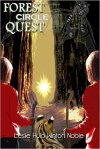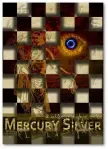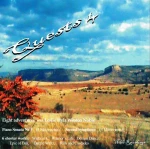A poem for Earth Day as prompted for NaPoWriMo:
A place of infinite delight:
Majestic oceans clear and pure,
And forests taking as their right
Free growth, pollution ills to cure;
All creatures ranging freely where
The whim should take them; no restraint
Except from natural barriers there –
Of interference, not a taint.
On Earth Day we may well reflect
What perfect planet this would be,
If only it would just reject
The presence of humanity.


















Earth is overrated.
Nice planet, though.
LikeLiked by 1 person
It is over-eated, too!
LikeLike
Happy Earth Day!
LikeLike
To you too! Hey, Earth must have done SOMETHING right – it has cats on it!
LikeLike
Oh! Come on! The world is NOT a friendly place. It is NOT kind to life. It is “pitifully indifferent” to life. In spite of also being capable of unimaginable cruelty, humans are only one of the very few life forms who show compassion to themselves as well as to other life forms.
By what criteria can anyone state that the world would be a better place without humans?
I’m sickened by these romantic sentiments of the “good mother nature”. It’s as narrow minded as the priest praising the “good Lord” whilst millions of children are dying horrible deaths due to wars, disease and hunger.
“The total amount of suffering per year in the natural world is beyond all decent contemplation. During the minute that it takes me to compose this sentence, thousands of animals are being eaten alive, many others are running for their lives, whimpering with fear, others are slowly being devoured from within by rasping parasites, thousands of all kinds are dying of starvation, thirst, and disease. It must be so. If there ever is a time of plenty, this very fact will automatically lead to an increase in the population until the natural state of starvation and misery is restored. In a universe of electrons and selfish genes, blind physical forces and genetic replication, some people are going to get hurt, other people are going to get lucky, and you won’t find any rhyme or reason in it, nor any justice. The universe that we observe has precisely the properties we should expect if there is, at bottom, no design, no purpose, no evil, no good, nothing but pitiless indifference.” Richard Dawkins.
LikeLike
By the simple criteria that humans are responsible for more degradation of the planet than any other species, and that they use their ‘superior’ development to find ways of overcoming what would normally provide a natural balance. They are despoilers on a large scale.
Nature without them, on the other hand, keeps that balance and plays no favourites other than those whose survival evolution progresses most – leading to an upward spiral of progress which presupposes purpose.
I have no patience with the squeakings and the squawkings of the like of Dawkins, and the incredible tunnel-vision they display. Good and evil are not to be measured in anthropomorphic terms. And the fear-runners and sufferers are balanced by the feasters and the happily fulfilled until they, too, contend with the cycle of being on the receiving end.
In a microcosm, simply look at an unspoilt natural area (which are still to be found, albeit with difficulty) compared with all those that have suffered the human imprint. The macrocosm would surely hold good.
LikeLike
I apologise if my comment sounded harsh – I do prefer a civil debate and accept that we can have different opinions and are able to agree to disagree on certain topics.
That said, just some points:
Humans are part of nature and not just a blight upon the earth – although we have a large footprint.
Yes, nature has balance but it does not make sense to place a value of good or bad to this balance. The balance is maintained without any moral sense. In periods of drought, many animals die. In periods when life flourishes, predators feast. This is not good or bad, it just is.
Every life form exists at the expense of others. Predator vs prey. Herbivore vs plants, parasite vs host. Tree against tree. Is this good or bad? Would complex life forms and intelligence have developed without this relentless competition? Is the development of complex life good or bad? I have no answers to these issues. But I cannot measure whether the world with or without us would be better or worse!
LikeLike
My ‘take’ is that humans, with reasoning powers which should enable them to consider the welfare of their home area and not just their own back yard, have failed the test of responsibility which comes with greater control over Nature. Although ants are by far more populous, and occasionally despoil their areas, their impact is minimal. Scale has a lot to do with that, of course – pity humans aren’t ant-sized.
Nature is certainly based on competition, and of adapting to be the most competitive. In our tiny universe, we see this leading to ever-increasing sophistication. In my view, this is a far stronger indication of purpose in everything, and therefore an intelligence in it, than all the religious teachings combined. So is the fact that one is driven to formulate ‘moral’ instincts without these automatically being tied, solely, to the welfare of the human race.
LikeLiked by 1 person
It could happen – see my gloomy planet Earth day poem.
LikeLiked by 1 person
Gloomy – but about right!
LikeLiked by 1 person